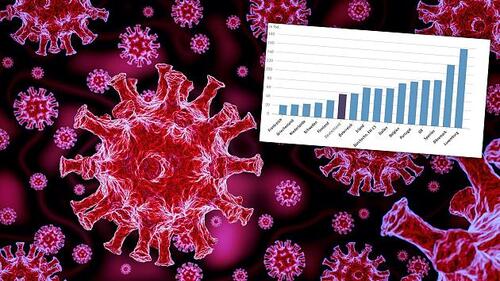This Blog Post is now in the queue for publishing as requested.
Depending on transfer load expect completion in around 15 minutes or 60 minutes if it has just been published by the owner.
This Blog Post has been removed from the queue for publishing as requested.
Antibodies also six months after infection
Posted by
Otto Knotzer on July 22, 2020 - 7:00am
Symptoms, course of the disease, spread: Sars-CoV-2 differs in many ways as a pathogen from many other viruses. However, there are comparable reactions in the formation of antibodies in humans after a Covid 19 disease. This gives hope for protection against a new infection.
According to a study, corona patients in many cases have so many antibodies permanently that a renewed infection with the virus can probably be warded off. This is the result of an as yet unpublished study in 327 Covid-19 patients in Wuhan, China, who are among the world's first infected people. In more than 80 percent of the patients, six months after their illness, biologically active antibodies were found that were able to render the virus harmless, said the virologist Ulf Dittmer, director of the Institute of Virology at the University Hospital Essen.

Preliminary balance sheetWhat we know about Corona - and what not
In addition to Chinese experts, three virologists from Essen, including Mirko Trilling, were also involved in the study by the German-Chinese community laboratory in Wuhan. The results of the investigation will be presented to a specialist magazine for review in the next few days.
All patients were in hospitals
The examined patients were all treated in the hospital and showed mild or severe symptoms, said Dittmer. The formation of the antibodies corresponded to what is known from other viral diseases, said the dpa virologist. "As a rule, an antibody response to viruses is quickly elicited. The amount of antibodies increases very rapidly, peaks, then falls again and then stabilizes at a level that can usually still provide protection against a new infection . " In the last two to three months of the six-month investigation period in Chinese Covid 19 patients, the amount of antibodies had remained relatively stable

Re-infection of likely corona recoverers will lose antibodies
"I think it follows that we can expect immunity from illness after at least a while," said Dittmer. This could also mean that vaccination can provide longer-lasting protection - as long as the vaccine is able to trigger antibody responses that are as stable as Covid 19 disease. How long such immunity lasts is still unknown. "According to the current study, however, one has to assume at least several months, probably more years." Other corona virus types are currently debating that immunity lasts only a few years. However, this has not yet been sufficiently investigated. Dittmer emphasized that no clear case of a recovered patient having been re-infected with the Sars CoV-2 virus is known worldwide. This would also speak for continued immunity.
Many questions are still open
In recent weeks, studies have become known that have dampened the hope of long-lasting immunity and thus the long-term effectiveness of a possible vaccination. Blood tests of the first corona patients in Germany, who were treated at the Munich Clinic Schwabing at the end of January, showed in some cases a significant decrease in the number of so-called neutralizing antibodies in the blood.

Little immunity after infection? New study confirms antibody loss
After encouraging interim results with the first corona vaccines in particular, many researchers still see it as the strongest future weapon against the disease. "The only illusion you have to take is that vaccination against Covid-19 lasts a lifetime," said Clemens Wendtner, chief physician of the clinic for infectious diseases at Munich Clinic Schwabing. "It could also be the case with a Covid-19 vaccine that you have to be vaccinated regularly, just like with the influenza vaccination." It was not unusual for vaccinations not to last for years, but to be refreshed regularly.
"You should see what vaccination can do for all of us," said Wendtner. Even after the encouraging interim results in the search for vaccines, experts expected a widely used and approved vaccine at the earliest in the course of the coming year. "So patience and understanding for the important protective measures of each individual are still required."
Chinese researchers had reported in the journal "Nature Medicine" that the antibodies decreased sharply after two months, especially in patients with a symptom-free course, but the values also fell in actually sick patients. Patients with few symptoms also had fewer antibodies and therefore a weaker immune response. However, symptom-free patients were not examined in the new study from Essen / Wuhan.





